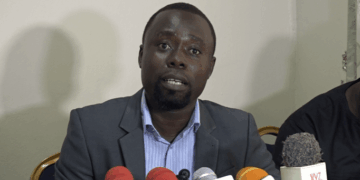Security analyst Peter Bismark has raised serious concerns about what he describes as deep structural flaws in Ghana’s national security framework.
According to the analyst, over-centralisation, resource constraints, and politicization are undermining the country’s ability to prevent and respond to threats.
Speaking on the Happy FM Morning Show with host Sefah-Danquah, Bismark said Ghana’s national security architecture, once regarded as one of the best in the region, is now facing serious challenges.
“We have centralised the authority of the entire national security in the country,” he noted. “The Ministry of National Security holds too much power, and decisions are concentrated in a few institutions. This over-centralisation weakens the overall system.” Bismark pointed to recent incidents that exposed logistical and operational limitations. “We couldn’t even get a helicopter to locate the exact spot of the incident, or an extra helicopter from the ministry to protect the scene for investigation,” he said.
He stressed that regional and district security councils lack autonomy, forcing them to wait for directives from higher authorities before taking action. “This delay slows early warning responses, especially in rural security incidents. We are doing more reactionary national security than preventive national security, and many of these situations could have been avoided if measures were in place, “he argued.
The analyst also criticised the politicization of key security appointments, stating that leadership roles in intelligence and other security bodies are often filled by presidential picks rather than through independent vetting. “There should be parliamentary approval to ensure neutrality and holistic oversight. We are choosing politicians over national security,” he asserted, citing examples such as military heads, the Inspector General of Police, and national security coordinators.
Bismark warned that the country undervalues the strategic importance of security, often placing it behind other national priorities. “National security is delicate and expensive. The main function of any government is security, the economy and environmental issues come after,” he stressed.
He called for urgent reforms to decentralise decision making, improve resource allocation, and depoliticise appointments, saying these changes are crucial if Ghana is to maintain a strong and responsive national security system.




















